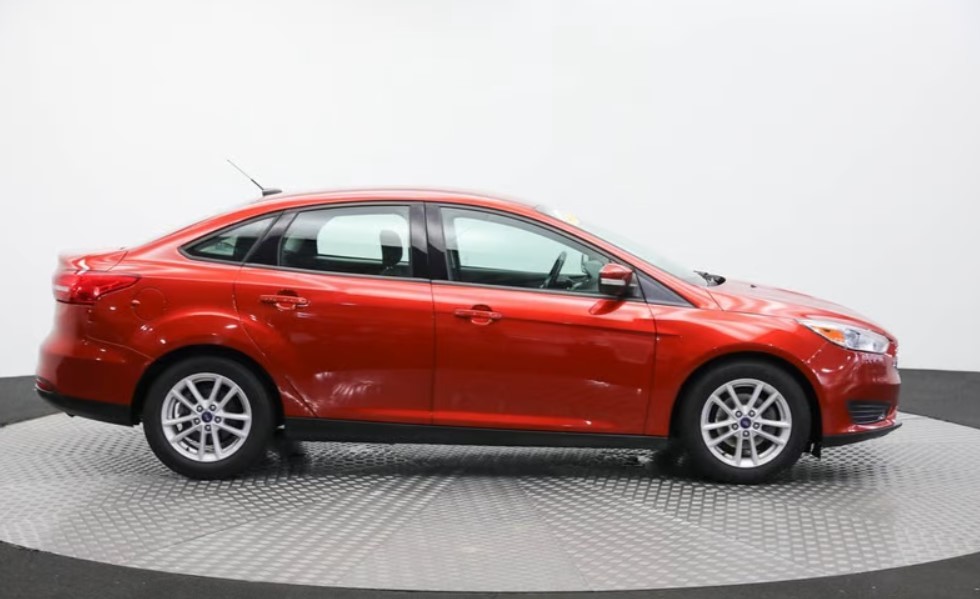 Ford Focus a quality car
Ford Focus a quality car
When you’re in the market for a vehicle, the question of whether a car is “good” often boils down to a mix of factors: performance, how long it will last, expert ratings, and what other drivers are saying. “Good” is really in the eye of the beholder – or, in this case, the driver. What one person loves, another might find just okay. For many car buyers considering a compact car, the Ford Focus frequently comes up. But Are Ford Focus Good Cars? They certainly have a dedicated fanbase who believe they are excellent vehicles. Let’s delve into what makes the Ford Focus a popular choice for some, and whether it lives up to the “good car” label.
Ford Focus: A Mixed Bag of Model Years
Like any car model that’s been around for a while, the Ford Focus has had its high points and low points across different model years. Looking at owner reviews and reliability ratings, some years of the Ford Focus stand out as particularly solid, while others have faced more criticisms. For instance, the 2010, 2011, and 2018 Ford Focus models are often praised for their dependability. However, models produced between 2012 and 2013 haven’t always received the same accolades. This doesn’t automatically make the 2012-2013 models “bad,” but it does highlight that some Ford Focus years are definitely more favored than others.
Key Aspects of the Ford Focus: What Makes it Tick?
The Ford Focus has earned a reputation as a generally reliable vehicle. With consistent and proper maintenance, a Ford Focus can potentially reach up to 200,000 miles. Fuel efficiency is another strong suit, typically offering around 30 miles per gallon in city driving and 40 mpg on highways. For drivers who clock in average annual mileage – say, between 13,000 and 15,000 miles – a Ford Focus presents itself as a practical and economical choice. It’s especially well-suited for daily commutes and those routine medium-distance trips.
However, it’s important to reiterate that not all Ford Focus years are created equal. Specifically, the 2012 and 2013 models have been reported to have recurring issues by some owners. These problems include:
- Powershift Transmission Troubles: This is perhaps the most widely reported issue, with jerky shifting and potential failures.
- Power Steering Failure: Some owners have experienced problems with the power steering system giving out.
- Engine Problems: In some instances, premature engine failure has been reported in these model years.
On the flip side, if you’re considering a used Ford Focus, the 2018, 2011, and 2010 models frequently appear at the top of “best of” lists, often cited for their value and reliability.
Top Ford Focus Years Praised for Value
A significant number of Ford Focus owners express satisfaction with the car’s dependability, how well it does on gas, and the availability of reasonably priced upgrades. Certain model years consistently receive high marks. Let’s look closer at a few of the best:
2010 Ford Focus
The 2010 Ford Focus marked the start of the third generation and is often recognized for its strong value proposition. It delivers good engine performance without sacrificing affordability. Fuel economy is also commendable for its class, averaging around 28 mpg.
2011 Ford Focus
The 2011 Ford Focus stands out for its strong reliability track record. It has had very few recalls and a low number of complaints registered against it. While there have been isolated cases of battery drain issues and, even more rarely, brake problems, these instances are not widespread. This makes the 2011 Ford Focus a solid contender among reliable used cars.
2018 Ford Focus
As the most recent model on this “best of” list, the 2018 Ford Focus includes modern tech features that buyers appreciate, even in the base S trim. These features often include Bluetooth connectivity, a rearview camera, and a touchscreen display. For those seeking a compact car that offers a bit of a sporty feel along with a strong reliability rating, the 2018 Focus is a compelling option.
Ford Focus Years You Might Want to Approach with Caution
While many Ford Focus years are considered good, some have presented ongoing problems for drivers. Notably, issues in some model years have surfaced before the vehicles even reached 100,000 miles, potentially cutting the expected lifespan of a Ford Focus in half for some owners.
Here are Ford Focus years that used car shoppers are often advised to be more cautious about:
- 2007 Ford Focus: Reports of alternators failing sooner than expected are common.
- 2008 Ford Focus: Electrical system glitches and door handle failures are among the most frequent complaints for this year.
- 2012 Ford Focus: Steering system problems and persistent transmission issues are widely documented.
- 2013 Ford Focus: Continuing transmission failures, along with reports of jerky shifting and steering problems, have plagued some 2013 models, sometimes even before hitting the 100,000-mile mark.
The 2012 and 2013 Ford Focus years particularly stand out due to widespread reports of transmission and steering system failures. These years were even subject to significant transmission recalls, contributing to their less favorable reputation among Ford Focus models.
Making Your Ford Focus Decision
Ultimately, determining if Ford Focus are good cars depends on the specific model year you’re considering and your personal needs in a vehicle. While some years offer excellent reliability and value, particularly the 2010, 2011, and 2018 models, it’s wise to be more careful when looking at 2012 and 2013 models. Doing thorough research on specific years and considering a pre-purchase inspection are always smart steps when considering any used vehicle, including the Ford Focus.
Whether a Ford Focus is “good” for you will come down to your priorities, budget, and the specific vehicle’s history. By understanding the strengths and weaknesses across different model years, you can make a more informed decision.